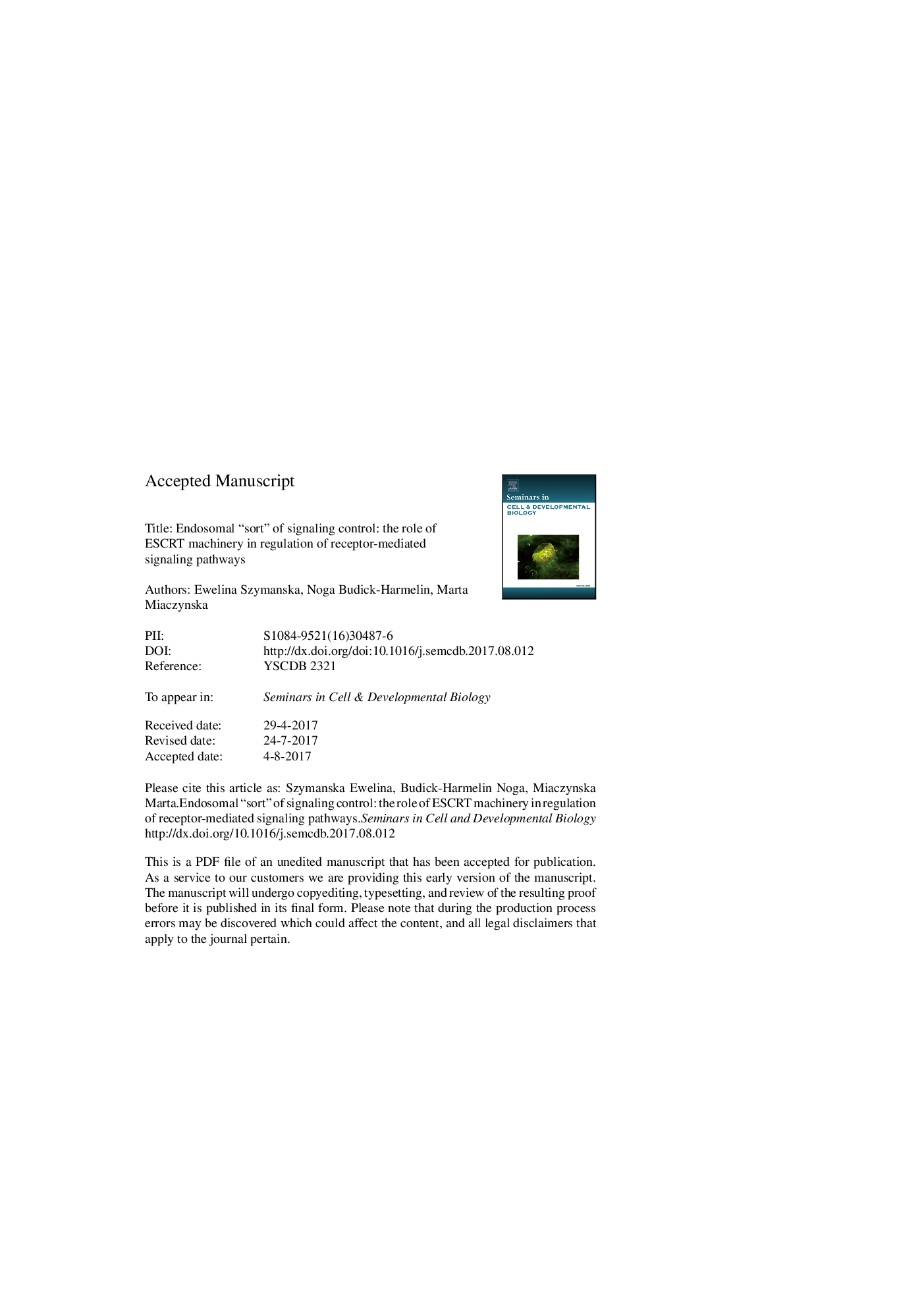| Article ID | Journal | Published Year | Pages | File Type |
|---|---|---|---|---|
| 8479771 | Seminars in Cell & Developmental Biology | 2018 | 34 Pages |
Abstract
The endosomal sorting complexes required for transport (ESCRTs) machinery consists of four protein assemblies (ESCRT-0 to -III subcomplexes) which mediate various processes of membrane remodeling in the cell. In the endocytic pathway, ESCRTs sort cargo destined for degradation into intraluminal vesicles (ILVs) of endosomes. Cargos targeted by ESCRTs include various signaling molecules, mainly internalized cell-surface receptors but also some cytosolic proteins. It is therefore expected that aberrant trafficking caused by ESCRT dysfunction affects different signaling pathways. Here we review how perturbation of ESCRT activity alters intracellular transport of membrane receptors, causing their accumulation on endocytic compartments, decreased degradation and/or altered recycling to the plasma membrane. We further describe how perturbed trafficking of receptors impacts the activity of their downstream signaling pathways, with or without changes in transcriptional responses. Finally, we present evidence that ESCRT components can also control activity and intracellular distribution of cytosolic signaling proteins (kinases, other effectors and soluble receptors). The underlying mechanisms involve sequestration of such proteins in ILVs, their sorting for degradation or towards non-lysosomal destinations, and regulating their availability in various cellular compartments. All these ESCRT-mediated processes can modulate final outputs of multiple signaling pathways.
Related Topics
Life Sciences
Biochemistry, Genetics and Molecular Biology
Cell Biology
Authors
Ewelina Szymanska, Noga Budick-Harmelin, Marta Miaczynska,
